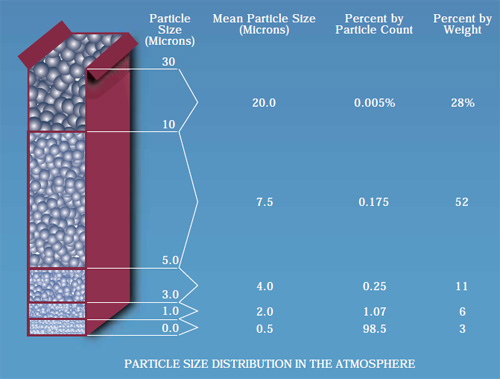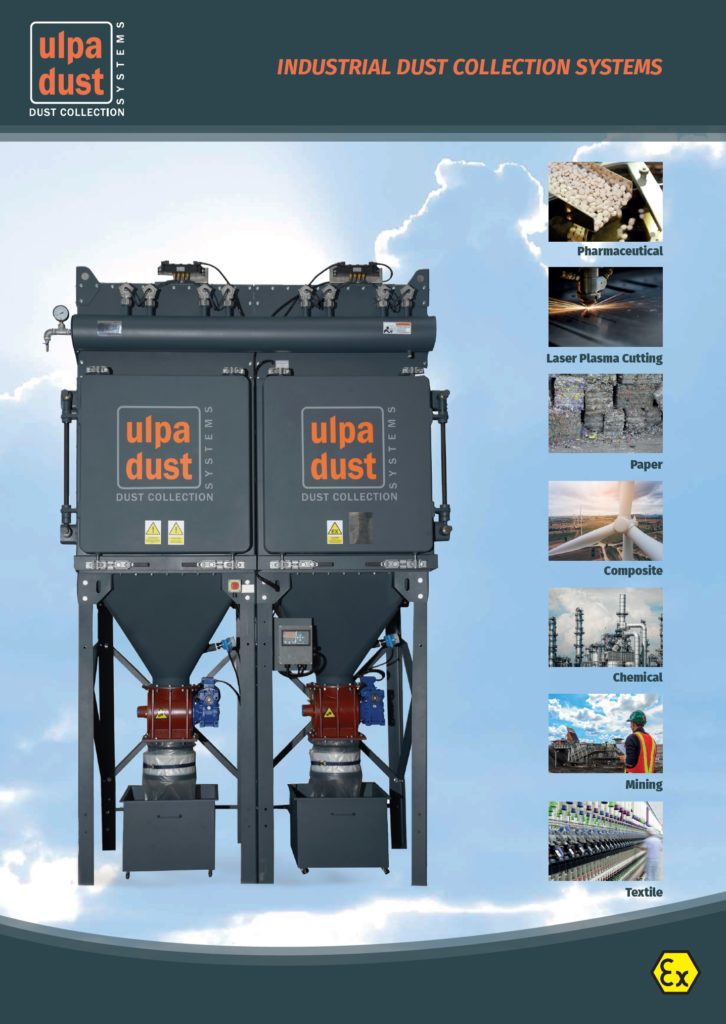EFFECT OF MEASURING METHOD
Work done under the sponsorship of ASHRAE and private organizations such as filter manufacturers showed that the percentage distribution of particle sizes in the atmosphere depended significantly on the method of measurement. Figure attached shows the relationship between particle size distribution and measurement. For instance, particles smaller than 1.0 micron comprise only 3% by weight of all atmospheric dust particles, but make up 98.5% by count.
On the other hand, atmospheric dust particles in the 5.0 to 10 micron size range comprise 52% by weight, but only 0.175% on a count basis. Note that almost all the particles in the atmosphere are less than 1 micron in diameter.
AIRBONE GASES
In addition to the normal gases in the atmosphere, the air we breathe contains a variety of gases in different mixtures and concentrations depending on our location. Most of these gases have odors which give us pleasure (from fragrances such as roses) or which are disagreeable (hydrogen sulfide from rotten eggs). Many gases are corrosive or toxic. Fortunately there are filters which works on adsorption principles which can catch most of these dangerous gases.





